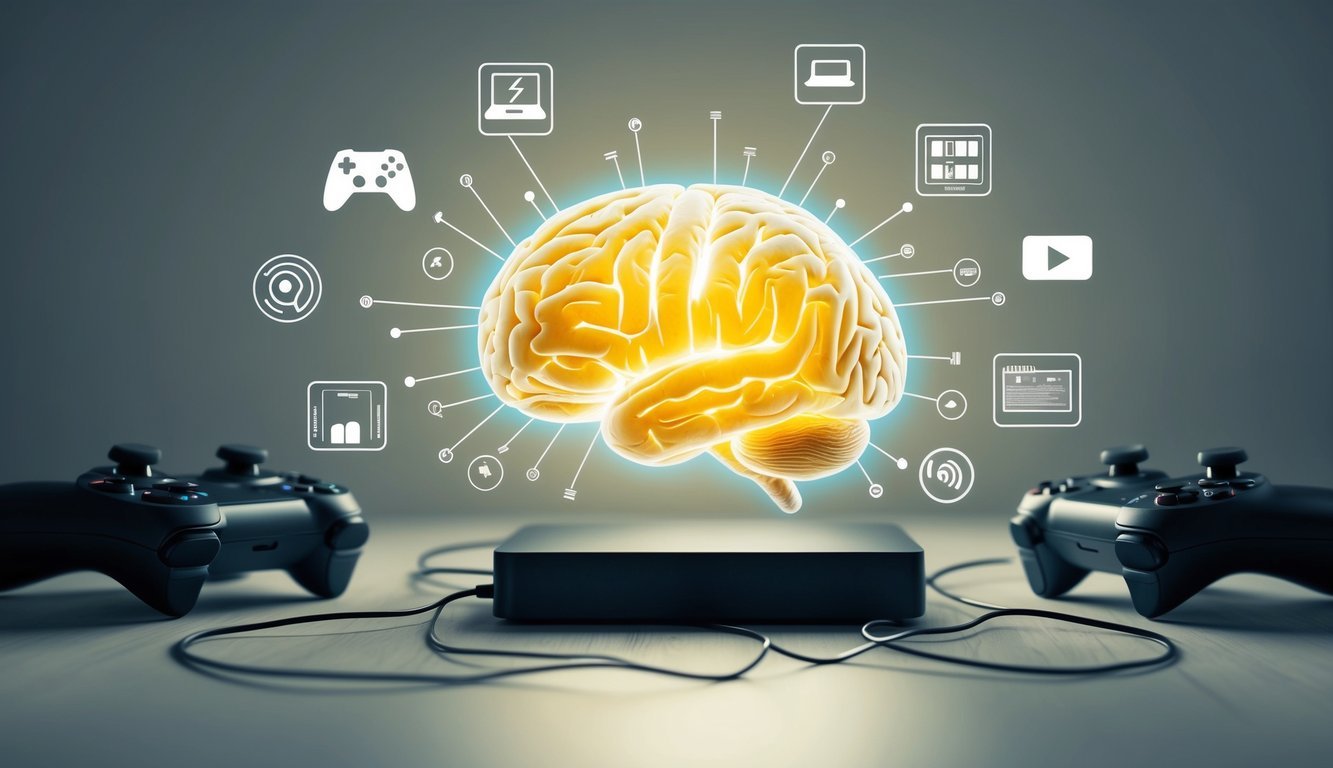PsychNewsDaily Publishers
100 Summit Drive
Burlington, MA, 01803
Telephone: (320) 349-2484
PsychNewsDaily Publishers
100 Summit Drive
Burlington, MA, 01803
Telephone: (320) 349-2484
Recent research indicates reduced brain activity in decision-making areas correlates with increased gaming addiction symptoms in adolescents aged 10 to 15.


Recent research has illuminated intriguing links between brain activity patterns and the risk of gaming addiction among teenagers. This four-year study focused on a group of adolescents aged 10 to 15, revealing that those who developed signs of gaming addiction exhibited diminished activity in brain regions associated with decision-making and reward processing.
This decline in responsiveness to non-gaming rewards suggests a possible explanation for why some teenagers are more susceptible to engaging in problematic gaming behaviors. Such findings can be invaluable for parents and healthcare professionals seeking to promote healthier gaming habits and to identify those who may be at a heightened risk of addiction.
The study, conducted by researchers at the University of Rochester, involved brain scans using fMRI technology that measured activity while participants engaged in a task with a $5 reward. Over the course of three additional years, these same teenagers completed questionnaires assessing their experiences with gaming addiction. The results indicated a clear correlation: those who reported an increase in gaming addiction symptoms had shown lower brain activity levels in areas critical for decision-making and reward processing during their initial brain scans four years prior.
Comparative research with adults has demonstrated similar trends, illustrating that a muted response to anticipated rewards corresponds with a greater likelihood of gaming addiction symptoms. This connection offers insight into the potential for diminished sensitivity to non-gaming rewards to drive unhealthy gaming behaviors.
While excessive gaming can be detrimental, moderation appears to be harmless, underscoring the important point that susceptibility to gaming addiction varies vastly among people. For parents navigating the complexities of screen time and gaming, these revelations highlight the necessity of balance rather than outright prohibition. Excessive restrictions may deprive children of essential developmental experiences, including vital social interactions with peers.
The research drew on data from the comprehensive Adolescent Brain Cognitive Development (ABCD) Study, which began in 2015, tracking nearly 12,000 children as they transition from pre-adolescence into adulthood to establish normative standards of brain development. The open-source nature of the dataset has allowed researchers nationwide to delve into various aspects of adolescent growth—social, emotional, cognitive, and physical. The University of Rochester joined this initiative in 2017, contributing data from approximately 340 participants across the 21 sites involved in the project.
This expansive dataset sheds light on a crucial but often neglected developmental phase, offering pathways to recalibrate recommendations concerning sleep, screen time, and gaming. The findings make it possible to identify specific brain regions linked to gaming addiction in teenagers, paving the way for future inquiries aimed at pinpointing at-risk youth and exploring additional behaviors or guidelines to mitigate such vulnerabilities.
Rochester’s contributions to understanding adolescent health are significant, engaging local communities and influencing discussions on a global scale. The interplay between brain development and behavioral patterns in young people reveals not only the nuances of gaming addiction but also the critical need for context-sensitive approaches to gaming practices in our increasingly digital world.
“`